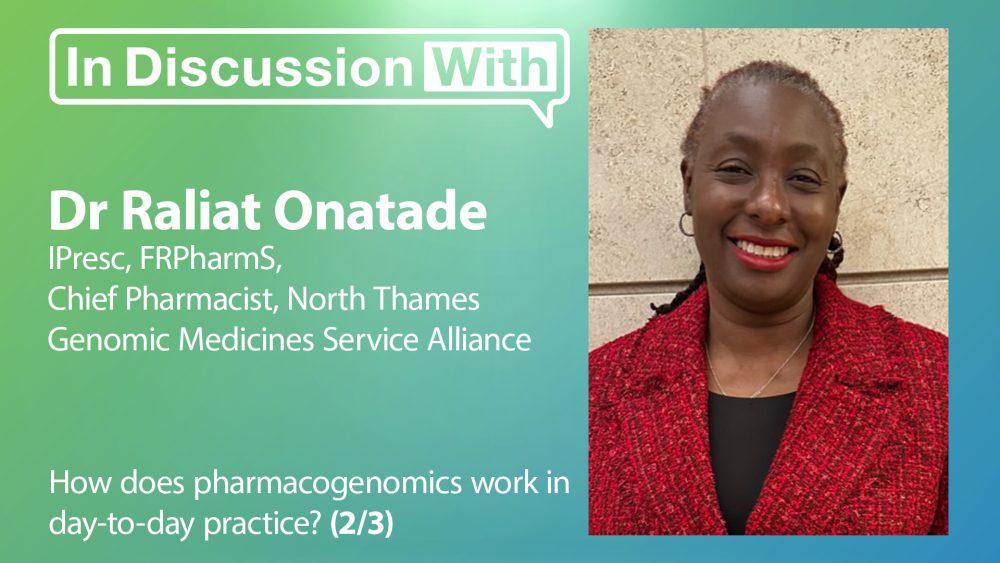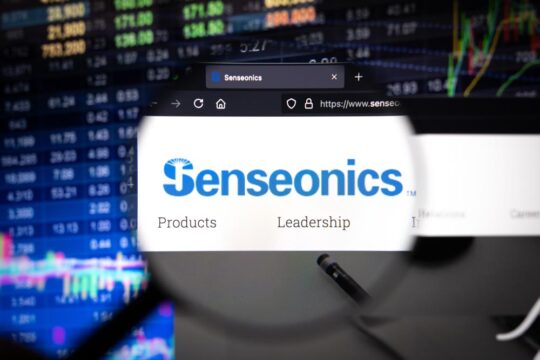Advertisment
How does pharmacogenomics work in day-to-day practice?

A number of examples show how pharmacogenetic testing is being integrated into day-to-day practice and helping to improve the safe and effective use of medicines, Raliat Onatade, Chief Pharmacist for North Thames Genomics Medicine Service Alliance, explains.
Mitochondrial mutation
The mitochondrial mutation m.1555A>G is often associated with maternally-transmitted deafness. People who carry this mutation are more likely to develop deafness if treated with aminoglycosides even if not exposed to toxic levels of the drugs. “When that’s associated with a maternal history of deafness then the risk goes up even further”, adds Dr Onatade. In the UK, the Medicines and Healthcare Products Regulatory Agency (MHRA) advises pre-treatment testing of patients who are likely to receive repeated courses of aminoglycosides, such as individuals with cystic fibrosis. “Certainly, if we have somebody with aminoglycoside-related toxicity then the recommendation is to test for this mutation so that we can understand whether or not they’ve got that increased sensitivity to it”, says Dr Onatade.
“Neonates are also tested for this and there is actually now a point-of-care test that is available to test neonates – so then that can be done before treatment is started”, she adds. At present, the point-of-care test is only validated for neonates. The test for adults is laboratory-based and this takes several days to turn round and so it may be necessary to give one course of treatment before the results are known.
TPMT and NUDT15
Thiopurine methyltransferase (TPMT) and nudix (nucleoside diphosphate-linked moiety)-type motif 15) NUDT15 are both enzymes involved in the metabolism of purine analogue drugs such as 6-mercaptopurine and 6-thioguanine. Variants of the genes that code for the enzymes can result in reduced enzyme activity and increased toxicity of the drugs. The NHS has recently agreed to commission these tests but only when these drugs are used for the treatment of acute lymphoblastic leukaemia. “That’s because before any test is commissioned and therefore paid for by the NHS, there has to be a very rigorous assessment of the evidence and of the value for money [and] the cost-effectiveness. However, they are still used in many other conditions where we treat with these drugs – so nobody’s missing out”, she adds.
Pharmacogenomic testing for CNS drugs
“The use of the pharmacogenetic testing in mental health or [in relation to] psychotropic drugs is really interesting. There is no officially-commissioned genetic test but as a general rule what we’re looking for is whether or not somebody metabolises particular drugs either very slowly or very quickly. …. For example, if somebody is an ultra-rapid metaboliser then they may well need a higher dose and if they are a particularly slow metaboliser then they might need a lower dose in order to not have side effects”, explains Dr Onatade. The importance of this is that “even now, after decades and decades of having psychotropic drugs available to us therapy is often still very much ‘try it out and see’”, she adds. Knowing in advance if someone was likely to be more or less sensitive to the effects of a drug would allow greater precision in treatment. Currently there is much research in this area; one important question is whether routine testing will actually make a difference to outcomes. The possibility of targeting ortailoring therapy to someone’s drug metabolic capacity would be a huge advance, she says.
About Raliat Onatade
Raliat Onatade holds three positions:
- Chief Pharmacist for Northeast London Integrated Care System
- Group Chief Pharmacist for Bart’s Health NHS trust also in East London
- Chief Pharmacist for North Thames Genomics Medicine Service Alliance
Dr Onatade’s EAHP keynote presentation can be viewed at https://events.eahp.eu/cmGateway/vimeoplayer.html?vimeoId=810496208
Read and watch the full series on our website or on YouTube.
This episode of ‘In Discussion With’ is also on Spotify. Listen to the full podcast now.





